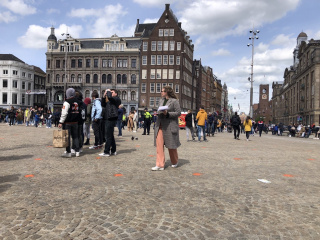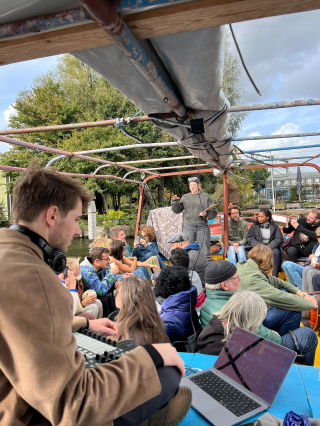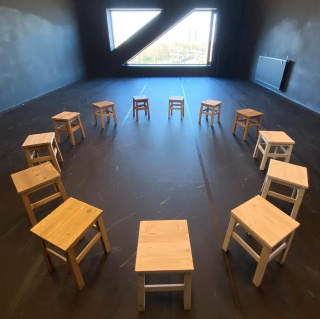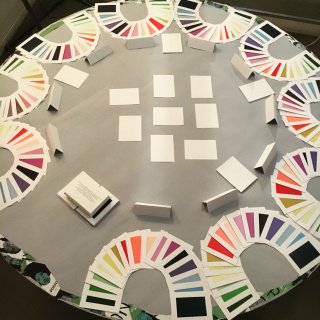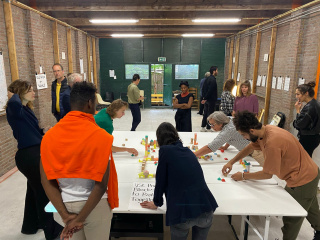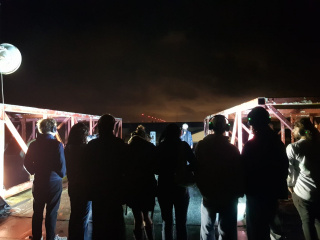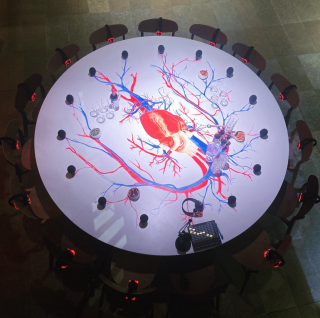Due to the fragmentation caused by capitalism and individualism, we are no longer accustomed to thinking and speaking in networks and interconnectedness. This makes it all the more crucial to train ourselves in relational thinking and movement.
As an experienced dialogue facilitator, I guide conversations that create space for diverse perspectives and critical reflection. I draw inspiration and methods from various dialogue formats. Through my long-term collaboration with the platform Building Conversation, I have conducted extensive research on dialogue and facilitated the conversation formats they have developed. My focus is on relational thinking—not just exchanging opinions but collectively creating meaning. With my background in theater and program-making, I design interactive and ritual-based forms that actively engage participants and deepen the dialogue. I frequently work as a moderator for cultural and social organizations, facilitating conversations that connect, challenge, and lead to new insights.
Dialogue formats I draw from and facilitate:
-
An Open Space conversation is a dynamic and self-directed discussion format where participants propose topics and explore them in shifting groups, without a predetermined agenda. It encourages spontaneous interaction, creativity, and ownership, allowing the most relevant and valuable conversations to emerge organically.
-
A Socratic dialogue is a conversation in which participants collectively seek truth and insight through critical questions and reflection, with the facilitator primarily serving as a questioner. The goal is not to persuade others but to develop a deeper understanding by examining underlying assumptions and beliefs.
-
The Parliament of Things is a dialogue format where non-human entities—such as objects, nature, or technology—are given a voice in the discussion. The aim is to explore our relationship with the world around us and reconsider the role of the non-human in human affairs.
-
An Impossible Conversation is a format where participants engage in discussions about complex, abstract topics (such as God, Love, Responsibility, or Collectivity) by sharing concrete personal experiences. Through writing, reading aloud, and listening, shared meanings emerge, which are then further explored in dialogue.
-
Thinking Together is a conversation based on the concept of "suspension" by David Bohm, who specialized in quantum theory, neuropsychology, and the philosophy of mind. This is an open-ended format. Suspension involves exposing your reactions, impulses, feelings, and opinions in such a way that they can be seen and felt within your own psyche, while also being reflected back by others in the group.
Each of these dialogue formats requires specific conditions and rules while also allowing for flexibility in their design. A conversation is a participatory artwork with countless possibilities.
For instance, I developed a method for conducting deep conversations in busy or chaotic environments by using microphones and a silent disco setup.
